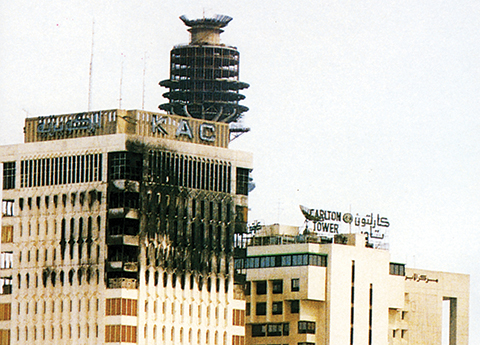GENEVA: Kuwait yesterday said it appreciated a UN commission's work to make up for losses the Gulf state incurred as a result of the 1990 Iraqi invasion and subsequent Gulf War. Kuwait has received this year three installments of compensations worth $90 million each from the United Nations Compensation Commission (UNCC), its public authority for assessment of compensation for damages resulting from the Iraqi invasion said. It revealed that Kuwait still awaits $4.4 billion worth of compensation, which it will receive in the near future. The UNCC was formed in 1991 as a United Nations Security Council body, with the aim of processing claims and paying compensation for losses and damage Kuwait suffered after it was invaded by its larger neighbor.
Separately, Kuwait has affirmed that the reforms undertaken by the United Nations Secretariat, including the reform of the pillar of peace and security, will undoubtedly increase the coherence of the work of the United Nations police in the field in all 'peace operations.' This came during Kuwait's speech at a Security Council session on United Nations police in peacekeeping operations delivered by First Secretary Fawaz Burisli on Tuesday evening. This comes under a unified leadership guided by the Security Council's resolutions, followed by the declaration of common commitments for peacekeeping, he said. He stressed that the work of the United Nations police is a key pillar in the implementation of peacekeeping mandates as it works to provide protection to civilians when mandated. He pointed out that the United Nations police are the most present in the field among regular peacekeeping personnel and sometimes their work extends to special political missions. This presence, whether through police officers or specialized police teams, has the greatest impact on enhancing civilian confidence and preventing renewed conflict.
Burisli stressed the importance of adequate training for UN police, including language skills, adherence to the zero tolerance policy on sexual violence in conflict and how to protect children. The role of the United Nations police also is highlighted through strengthening of the role of legal institutions, the reform of the security sectors, building of institutions' capacities to strengthen the rule of law and its sovereignty and maintain stability after it is achieved. The continuity of the United Nations police presence in the field compared to other regular personnel places on their shoulders responsibility for ensuring a smooth transition from peacekeeping to post-conflict peace-building, he said. - KUNA











